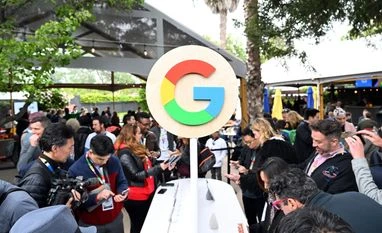Google pulls down documentation containing parameters for Search ranking
Reportedly, the document which was allegedly meant for Google employees got accidentally published on GitHub
Harsh Shivam New Delhi Google has pulled down its documentation, which specified what parameters the company uses for generating and ranking Search results, after accidentally publishing it on GitHub. According to a report by 9To5Google, the American technology giant had published “Google API Content Warehouse” documentation on GitHub platform on March 27 and pulled it back on May 7.
The documentation, reportedly, had information that was meant for the company’s employees and was published accidentally. This “Google API Content Warehouse” had internal API documentation that detailed various components that Google uses to generate Search results for its search engine. The document was reportedly 2,500 pages long and even included details about outdated models, however, it may have included information about the Search system that Google still uses.
Read More: Google's Chromebook Plus gets big AI boost to rival Copilot Plus PCs The report stated that the document contained data that show the factors that Google Search model takes into consideration when organising the sequence of results on the Search result page for a user’s query. However, it did not reveal the weightage of each factor that determines the Search ranking.
Android Authority has reported that the documentation revealed discrepancies between Google’s guidelines for Search Engine Results Page (SERP) and the metrics used by Google for ranking results. Some of the key pointers mentioned in the report includes:
Chrome data for ranking: According to the report, Google in its guidelines stated that it does not use Google Chrome data for ranking Search results. However, the document suggests that the company uses “Chrome-related measurement attributes.”
Clicks: Google has maintained that it does not use clicks directly for ranking content on the search page but the documentation stated that there exists a “click and impression signal” system, which takes into account factors like “date of last good click,” and “longest click during the session”.
Authors: As per Android Authority, Google said that author bylines should be available for readers benefits and not for search result ranking purposes. However, the document stated that the company collects “Author Data” from pages. Although, the document does not confirm if author data is used as a metric for ranking.
Domain Authority: As per the report, Google does not use the concept of “overall domain authority” for ranking, but the document revealed that Google takes into account a metric called “site authority” to list results in search.
Other metrics that are reportedly used by Google Search includes- hyperlinking, relevance and branding. Additionally, the document stated that Google could also demote content if the link does not match the target site or led to inappropriate content and more.
Google at its annual developer conference “I/O” announced that it is integrating artificial intelligence into Search with AI overviews. Previously known as Search Generative Experience (SGE), Google’s AI Overviews in Search generates a summary on top of the Search results page, offering a quick overview of the topic along with relevant links to websites. However, the rollout of this new technology has been far from smooth, generating inaccurate summaries and false information.
*Subscribe to Business Standard digital and get complimentary access to The New York TimesSubscribeRenews automatically, cancel anytime
Here’s what’s included in our digital subscription plans
Exclusive premium stories online
Complimentary Access to The New York Times

News, Games, Cooking, Audio, Wirecutter & The Athletic
Curated Newsletters

Insights on markets, finance, politics, tech, and more delivered to your inbox
Market Analysis & Investment Insights
Seamless Access Across All Devices










)

